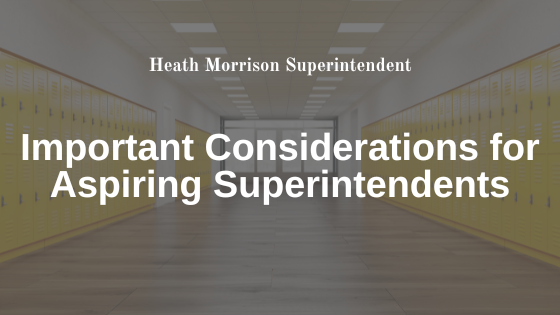I have had the honor of helping a number of aspiring superintendents secure their first position leading a district. As I work with these leaders, I always start with what type of district they are looking for – large, small, urban, rural, etc. Geography is always important, and other factors such as compensation, prestige, and performance on federal and state measures all come into play. One of the aspects of a district I always emphasize to candidates is to consider the stability of the school board and the ability of the potential candidate to create an effective governing team. Some are quick to dismiss this key component, thinking they can work with any board or operate under the belief that their performance will outweigh any challenges with a board. These are often superintendents who are not long for these positions. So what are factors for potential superintendents to consider when evaluating the “fit” with potential board members? Some considerations may include:
- What factors caused each member to run for the board? Across the country, some board members see the position as a stepping stone to higher office; others are former employees who left under less than ideal circumstances. Others are focused on some students, but not all. All of these motives can be challenging for a new superintendent. Thankfully, most people who seek school boards are servant leaders and run to truly and positively impact public education. The more of these individuals serving on a board, the more desirable the position becomes.
- What is the track record of stability on the board? There is much written about the constant turnover of superintendents across the country, but that is often accompanied by a community that is constantly turning over board members. Leadership requires a certain amount of stability at the top of the organizational structure and it is hard for any superintendent to move his or her agenda forward if board members are constantly cycling on and off the board.
- How often does the board disagree on the most important votes? All potential superintendents want to be the unanimous choice of a board, and it is very questionable to come into a district on a split decision. The aspiring superintendent should do the required homework to investigate why the board has split on important votes such as budgets, bonds and strategic direction. While every superintendent believes they can be the unifying force to bring the leadership team together, history suggests otherwise.
I want to raise one last important point… During the interview process, the board and superintendent candidates must engage in complete candor and honesty. If the board is looking for incremental change and the superintendent is a reformer at heart, the match is not ideal. If the superintendent is not really committed to staying, and the board is looking for sustained leadership, this will get exposed. All parties being open from the beginning, and being honest through the process, provides the best opportunity for a quality match that ultimately serves children, staff and a community.

